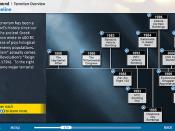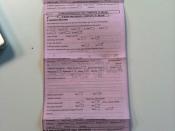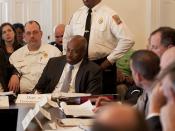Imagine we are a resident of Jerusalem in the year 60 AD, and we are taking a walk throughout the marketplace doing our weekly shopping. We see a man pull out a dagger and he yells, "Death to all Romans!" and attacks a Roman guard, killing him in front of hundreds of spectators. The assassin quietly slips into the crowd and is lost in a sea of people never to be found. The word of the attack spreads and soon it is the talk of the town. Many more attacks on Romans are made by the Safari and the Zealots. Sympathizers of the Romans slowly disappear and their voices vanish from Jerusalem. The fear of terrorism grows and Roman repression grows along with it. This in turn leads to the people of Jerusalem to revolt in 70 AD (Miller 5). If this attack had been made in some dark alley with no spectators, people wouldn't react differently.
The marketplace of old Jerusalem can be compared to the media of today. What better place to get the public informed about our reasons and purpose for attacks than the news. Albert Bandura gave a good definition of terrorist's objectives when he stated: "Terrorists try to exercise influence over targeted officials on nations through intimidation of the public and arousal of sympathy for the social and political causes they expose. Without widespread publicity, terrorist acts can achieve neither of these effects." (Bandura, Albert qtd. In Nacos 1). Terrorists need the news media to get the publicity, and the media is a willing accomplice. The news media is an accessory to terrorism, and as such they should develop a set of standards that will limit the terrorist's ability to get their message out to a large audience during terrorist situations. The media should...



Nice!
There is a good essay, Michal Moore's successor hopefully ;)
2 out of 2 people found this comment useful.